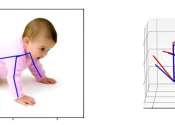Last update:
Computer Sciences news

Q&A: Model disgorgement—the key to fixing AI bias and copyright infringement?
By now, the challenges posed by generative AI are no secret. Models like OpenAI's ChatGPT, Anthropic's Claude and Meta's Llama have been known to "hallucinate," inventing potentially misleading responses, as well as divulge ...
Computer Sciences
May 17, 2024
0
35

From the road to the cloud: Leveraging vehicle Global Navigation Satellite System raw data
Innovative Global Navigation Satellite System (GNSS) positioning technologies harness massive vehicle-generated data to create high-resolution atmospheric delay correction maps, significantly enhancing Global Positioning ...
Telecom
May 17, 2024
0
6

Orphan articles: The 'dark matter' of Wikipedia
Wikipedia is the largest platform for open and freely accessible knowledge online yet, in a new study, EPFL researchers have found that around 15% of the content is effectively invisible to readers browsing within Wikipedia. ...
Internet
May 17, 2024
0
31

Generating empathetic machine responses through emotion tracking and constraint guidance
Enabling machines to communicate like humans is a long-term goal of open-domain dialogue generation. To achieve this goal, more and more studies on dialogue generation focus on the key factor, emotion. The empathetic dialogue ...
Computer Sciences
May 16, 2024
0
1

New browser extension empowers users to fight online misinformation
Most people agree that the spread of online misinformation is a serious problem. But there is much less consensus on what to do about it.
Internet
May 16, 2024
0
22

Sarcasm, notoriously difficult to interpret, demystified by multimodal approach
Oscar Wilde once said that sarcasm was the lowest form of wit, but the highest form of intelligence. Perhaps that is due to how difficult it is to use and understand. Sarcasm is notoriously tricky to convey through text—even ...
Computer Sciences
May 16, 2024
0
24

'Noise' in the machine: Human differences in judgment lead to problems for AI
Many people understand the concept of bias at some intuitive level. In society, and in artificial intelligence systems, racial and gender biases are well documented.
Computer Sciences
May 15, 2024
0
36

Cinematic tools can significantly improve user experience in virtual reality environments
Cinematography techniques can significantly increase user engagement with virtual environments and, in particular, the aesthetic appeal of what users see in virtual reality.
Consumer & Gadgets
May 14, 2024
0
1

Aurora supercomputer breaks exascale barrier
Aurora's speed and artificial intelligence capabilities will transform scientific research and enable breakthroughs in some of the world's most pressing challenges, from climate and materials science to energy storage and ...
Computer Sciences
May 14, 2024
0
3

Digital records can help make European homes and offices greener and healthier
In the southern Italian town of Ruvo di Puglia, a school that opened in 1924 is getting a 21st century upgrade.
Energy & Green Tech
May 14, 2024
0
1

Researchers improve scene perception with innovative framework
Led by Prof. Liu Yong from the Hefei lnstitutes of Physical Science of the Chinese Academy of Sciences, researchers have proposed a novel framework, called Clip-based Knowledge Transfer and Relational Context Mining (CKT-RCM), ...
Computer Sciences
May 13, 2024
0
2

Degradation-adaptive neural network for jointly single image dehazing and desnowing
In harsh winter scenes, the captured images often suffer from haze and snow degradations simultaneously, which significantly affect the performance of high-level computer vision tasks. Most existing restoration methods are ...
Computer Sciences
May 9, 2024
0
15

Prototype browser extension adds Wikipedia-like citations on YouTube to curb misinformation
While Google has long been synonymous with search, people are increasingly seeking information directly through video platforms such as YouTube. Videos can be dense with information: text, audio, and image after image. Yet, ...
Internet
May 9, 2024
0
24

New software trained on photographic database may allow facial recognition beneath the mask
During the COVID-19 pandemic, facemasks became almost ubiquitous and still are in some environments. There is a need for face recognition to be able to "see behind the mask" for security and safety.
Software
May 7, 2024
0
8

3D video conferencing tool lets remote user control the view
Collaborating on a physical object when two people aren't in the same room can be extremely challenging, but a new remote conferencing system allows the remote user to manipulate a view of the scene in 3D, to assist in complex ...
Computer Sciences
May 6, 2024
0
25

Researchers propose design methodology for hardware Gaussian random number generators
A research team from the University of Science and Technology of China (USTC) of the Chinese Academy of Sciences (CAS) has proposed a novel design methodology for Gaussian random number (GRN) generators tailored for SerDes ...
Hardware
May 6, 2024
0
1

Multiplexed neuron sets make smaller optical neural networks possible
Seeking to improve the practicality of optical neural networks that use wavelength division multiplexing, a research team developed a structure called multiplexed neuron sets and a corresponding backpropagation training algorithm.
Computer Sciences
May 6, 2024
0
11

All the right moves in martial arts: Researchers develop system to quickly identify errors and improve form
Research in the International Journal of Biometrics introduces a new method for assessing a practitioner's precision in martial arts training. The method focuses on quickly identifying errors in the athlete's movements and ...
Engineering
May 3, 2024
0
5

Team develops efficient stochastic parallel gradient descent training for on-chip optical processors
A new publication in Opto-Electronic Advances discusses efficient stochastic parallel gradient descent training for on-chip optical processors.
Electronics & Semiconductors
May 1, 2024
0
11

Researchers conduct survey on deduplication systems
A review published in the International Journal of Grid and Utility Computing has investigated ways in which the increasing problem of duplicate data in computer storage systems might be addressed. Solutions to this problem ...
Computer Sciences
May 1, 2024
0
6
More news

A new framework to improve high computing performance

Researchers develop a new way to instruct dance in virtual reality

As quantum computers advance, encryption methods will need to keep up

Computer scientists unveil novel attacks on cybersecurity

Adobe's VideoGigaGAN uses AI to make blurry videos sharp and clear

Emulating neurodegeneration and aging in artificial intelligence systems

Holographic displays offer a glimpse into an immersive future

With a game show as his guide, researcher uses AI to predict deception

New mitigation framework reduces bias in classification outcomes

New logarithmic step size for stochastic gradient descent
Other news

Researchers realize multiphoton electron emission with non-classical light

Composition of gut microbiota could influence decision-making

Physicists propose path to faster, more flexible robots

Spiny legged 308-million-year-old arachnid discovered in the Mazon Creek locality

Furry thieves are running loose in a Maine forest, research shows

Scientists develop new geochemical 'fingerprint' to trace contaminants in fertilizer

Chemists develop new method for introducing fluorinated components into molecules




















































